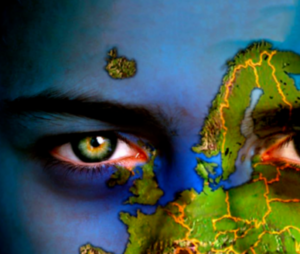Recording of the conference with guest speaker Jean-Claude Juncker held on 13 October 2017 at the University of Luxembourg.
In 2017, the European Union is celebrating the anniversaries of two key events: 60 years since the Treaty of Rome and 25 years since the Treaty of Maastricht.
The aim of the European project with its six founding Member States, of which Luxembourg and its politicians were among the forerunners, was to guarantee sustainable peace and prosperity on the continent through cooperation and integration. Against a backdrop of success and crisis, and shaped by a shared vision for progress, the process of building a united Europe has progressively yielded its results: the internal market with its four fundamental freedoms, the euro, the promotion of democracy, the European social model and human rights, European citizenship, and infrastructures for education and knowledge are now all part of the daily lives of hundreds of millions of Europeans. The EU has become a factor for development and solidarity in an increasingly globalised world.
But although the EU is stepping up its action to tackle key challenges such as the Juncker Plan for strategic investment in Europe, ongoing efforts for a political, energy and fiscal union, the establishment of a European defence system and the exploration of possible paths for a shared future – as raised in the European Commission White Paper published in March and in the Roadmap for a More United, Stronger and More Democratic Union launched on 13 September 2017 -, this year is nevertheless characterised by uncertainty in many areas. The implementation of Brexit, the management of the refugee crisis, the breakdown of solidarity among the Member States and the rise of populism and inward-looking identity politics are leading to fragmentation and division, which in turn are fostering Euroscepticism and casting a shadow over our shared future. Europe will only avoid the worst effects of these trends by drawing closer to its citizens, reminding them of its values and advantages and encouraging them to make a shared commitment, with fresh momentum, to a renewed European project.
To help us understand the Europe of today and discuss the Europe of the future, the Luxembourg Centre for Contemporary and Digital History (C²DH) was organising the conference “Shaping the Europe of the future” with guest speaker Jean-Claude Juncker, President of the European Commission.
Programme
-
10.00
European anthem
Welcome by Prof. Andreas Fickers, Director of the C²DH
Opening remarks by Prof. Ludwig Neyses, Vice-President for Research, acting President of the University of Luxembourg
-
10.15
Address by Marc Hansen, Minister Delegate for Higher Education and Research
-
10.20
Lecture by Jean-Claude Juncker, President of the European Commission
-
10.50
Discussion between Jean-Claude Juncker and students
-
11.25
Break
-
11.35
Start of the round table
Moderated by Prof. Andreas Fickers, Director of the C²DH
Participants:
Jacques Santer, Honorary Minister of State, former Luxembourg Prime Minister, former President of the European Commission
Viviane Reding, Member of the European Parliament, former Vice-President of the European Commission
Claude Turmes, Member of the European Parliament
Yves Mersch, Member of the Executive Board of the European Central Bank, former President of the Banque centrale du Luxembourg
Dr Ludwig Neyses, Vice-President for Research, acting President of the University of Luxembourg
Mara Kroth (Germany), Bachelor in Psychology, University of Luxembourg
Max Leners (Luxembourg), Master in European & International Tax Law, University of Luxembourg, currently a student at King’s College London
Mariana Matos Rodrigues (Portugal), final year pupil at the Lycée Michel Lucius, Luxembourg
Otilia-Ioana Tira (Romania), second year Master’s student in Contemporary European History, University of Luxembourg
-
12.30
End of the event: Closing remarks by Prof. Andreas Fickers

